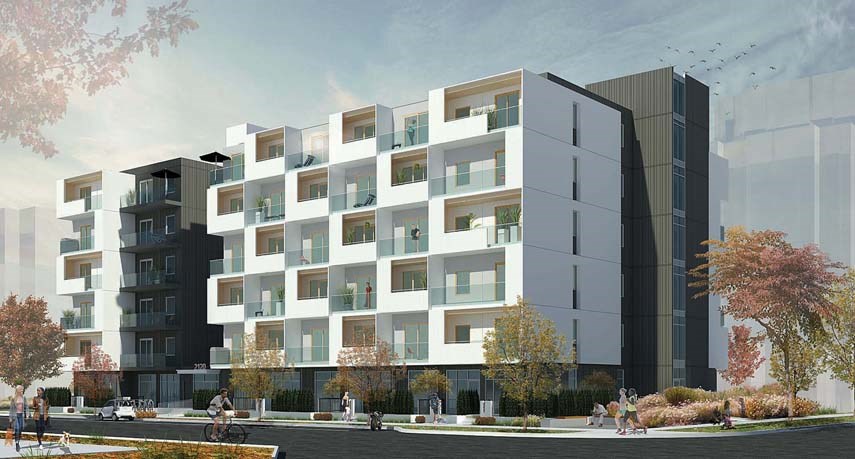A Douglas College instructor is leading a discussion aimed at improving the public conversation around social housing.
Elliot Rossiter, a regular faculty member in the department of philosophy and humanities, has developed a three-part series of events related to public engagement on social housing, in part due to the modular housing development in Queensborough and the controversy surrounding it. A core goal of the series, Changing the Conversation: Reflective Empathy and Public Discourse on Social Housing,is to explore how alternative modes of public engagement might amplify different types of voices in the process and how those voices might be incorporated into the city’s engagement processes around the development of public policy – particularly around controversial issues.
“The primary goal of this initiative is to encourage reflective and empathetic public conversation about the issue of social housing in New Westminster and the broader Metro Vancouver region,” said Rossiter’s outline about the series. “Social housing projects – such as the modular supportive housing units currently being developed by the provincial government – are not without controversy and often face vocal public opposition.”
According to Rossiter, the public discourse surrounding the development of these projects can be “quite toxic” at times. He said the process has two “significant” problems: the bulk of public discussion occurs quite far along in the development process, such as when specific sites are selected, constructed, and opened; and property owners opposed to these projects tend to have the loudest voices in public hearings and media coverage, while the perspectives of those in need of this housing are rarely heard.
“As a result of these two factors, conversations about this issue occur at a point when members of the community have dug in their heels in opposition to a specific project coupled with the perceived threat of an associated increase in crime and decrease in property values – a perception bolstered by the stigmatizing narratives that pervade discussions of poverty and homelessness when only one side of the story is heard,” said the outline.
The events are free and open to the public. Registration and details are available at bit.ly/ReflectiveEmpathy.
The first of the three events is on Wednesday, Jan. 22 from 6:30 to 8 p.m. at Anvil Centre. It will focus on diagnosing the problem with public discourse.
“The evening will involve both a general discussion of factors contributing to poor public conversation and a specific discussion of the public engagement process in New Westminster,” said Rossiter’s outline. “This event includes looking at the history of political discussion in New Westminster and features the New Westminster Museum and Archives as its main community partner.”
Listening to Different Voices in the Process is the focus of the second event, which is on Tuesday, March 3 from 6:30 to 8 p.m. at the New Westminster Public Library.
“This event will centre the voices of those with lived experience of poverty and homelessness, and aims at redressing the one-sided narrative that often occurs in public conversations,” said the outline. “A key goal of this event is to think about how to make public conversations more reflective, empathetic, and balanced in terms of representing marginalized voices in municipal public engagement processes.”
The final event, which has a theme of Reframing the Narrative through the Arts, is on Friday, March 27 from 6:30 to 8 p.m. at the Laura C. Muir Theatre at Douglas College.
“This event will explore the political function of the arts in helping community members think more deeply about social housing,” Rossiter said in his outline. “The evening will feature the work of local artists through a contest that includes poetry, creative non-fiction, and photography aimed at generating reflective empathy about social housing.”
Along with Rossiter, the steering committee for the project includes Coun. Nadine Nakagawa and Shila Avissa, a social worker in the Downtown Eastside.



